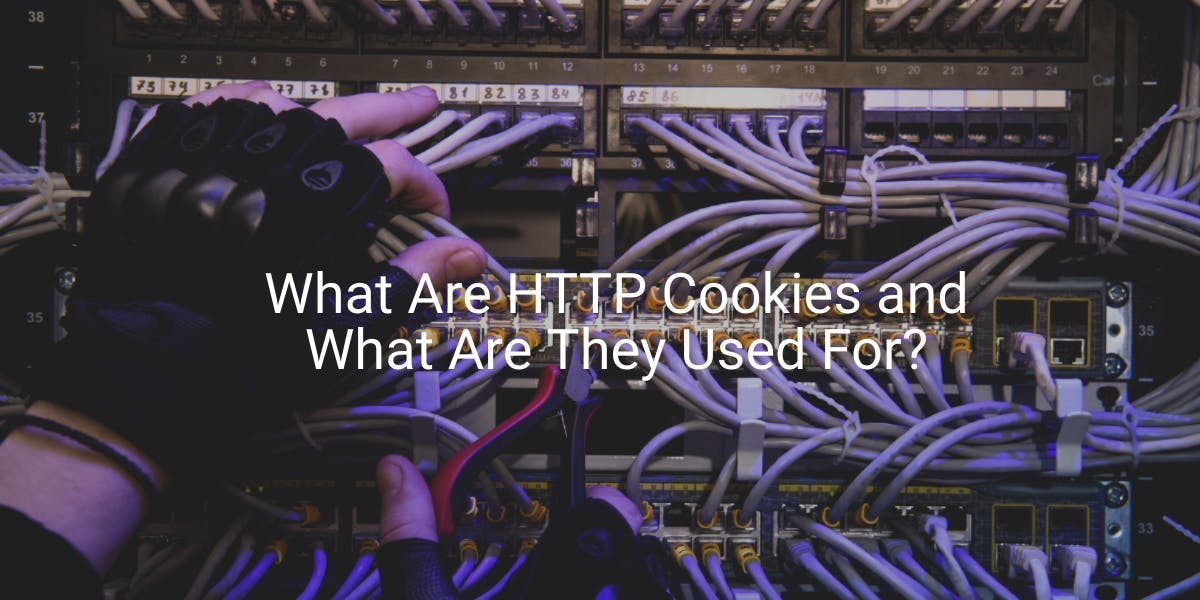What Are HTTP Cookies and What Are They Used For?
Flipnode on Mar 21 2023

Although HTTP cookies have been around for a while in the tech industry, they still pose a number of concerns for users and developers alike. Some individuals view cookies as a potential tool for spyware, while others worry about their impact on web scraping. This article aims to provide a comprehensive overview of HTTP cookies, including how they function, and delve into the basics of web scraping, examining the potential impact of HTTP cookies on the process.
What are HTTP cookies?
HTTP cookies are a crucial element in web development, as they allow web servers to send a small amount of data to a user's web browser, which is later saved and returned in subsequent requests. This information exchange enables web servers to remember details about users and distinguish them from others. While cookies do not necessarily require personal information, they do help websites identify users based on their browser specifications. It is worth noting that some websites may store personal data using cookies, but only with user consent.
What are HTTP cookies used for?
Websites often rely on HTTP cookies to enable advanced features such as login systems, customizable themes, and personalization options. These cookies serve three main purposes: session management, personalization, and tracking.
Session management involves using cookies to store data about a user's interaction with a website, such as login credentials and items added to a shopping cart. This allows users to continue where they left off, without having to repeat actions or log in repeatedly.
Personalization cookies enable websites to tailor content and features based on general user characteristics, such as language preferences, browser type, and location. This creates a smoother and more efficient browsing experience.
Tracking cookies are used to monitor a user's interests and behavior on a website over time, allowing for targeted advertising and content recommendations. Although some users may find this intrusive, these cookies can be easily deleted to prevent further tracking.
Additionally, third-party cookies are often used for advertising purposes and can be disabled through browser settings.
How are cookies sent?
HTTP cookies are added to the HTTP header by the web server. Subsequently, every time a user's browser sends a request to the same domain, the browser attaches the cookies. The cookies are stored in a file in the browser's application data folder. Later, when the browser sends a request, it automatically sends the cookie as part of the request.
An example of an HTTP cookie is "Set-Cookie: name=Flipnode; expires=Sat, 20 March 2023 14:30:24 GMT". This allows web pages to identify users based on their browsers and enables the web server to personalize content, and store necessary data such as logins and items in the cart, among other things.
How can I see what web cookies are stored in my browser?
Typically, the location to access stored cookies is within the settings section of the browser. Most browsers have a cookie management section located under "Settings," with a subsection labeled "Privacy" or "Safety."
HTTP cookies in web scraping
The primary difficulty in web scraping is avoiding being blocked by targeted web pages. To address this issue, it is important to have an understanding of how cookies operate.
When conducting web scraping, it is crucial to mimic human behavior to prevent web servers from identifying scraping activities as suspicious bot activity, which may result in being blocked or receiving error responses from targeted websites.
As previously stated, HTTP cookies are transmitted from websites. Consequently, managing HTTP cookies is critical. When making requests to specific web pages, it is essential to use the appropriate cookies to obtain the required data. If the cookies from the main page are not included in your request when accessing a page within a website, your web scraping activity is more likely to be identified as suspicious.
To manage HTTP cookies while accessing a particular product on an e-commerce site, for example, one solution is to first visit the main page, gather the cookies, and send them with requests for specific products. By utilizing the appropriate cookies, developers can simulate a distinct user for each request they make. Additionally, most Python libraries used for making requests, such as Requests or PycURL, have built-in HTTP cookie management capabilities.
Wrapping it up
HTTP cookies are primarily used to recognize users so that websites can personalize their content and store important information such as logins and items in the cart. It's important to note that HTTP cookies only identify the user's browser and not their personal information.
Efficient cookie management is essential for successful web scraping. Failing to manage cookies properly can result in the web scraping process being unsuccessful and the desired data being inaccessible.


